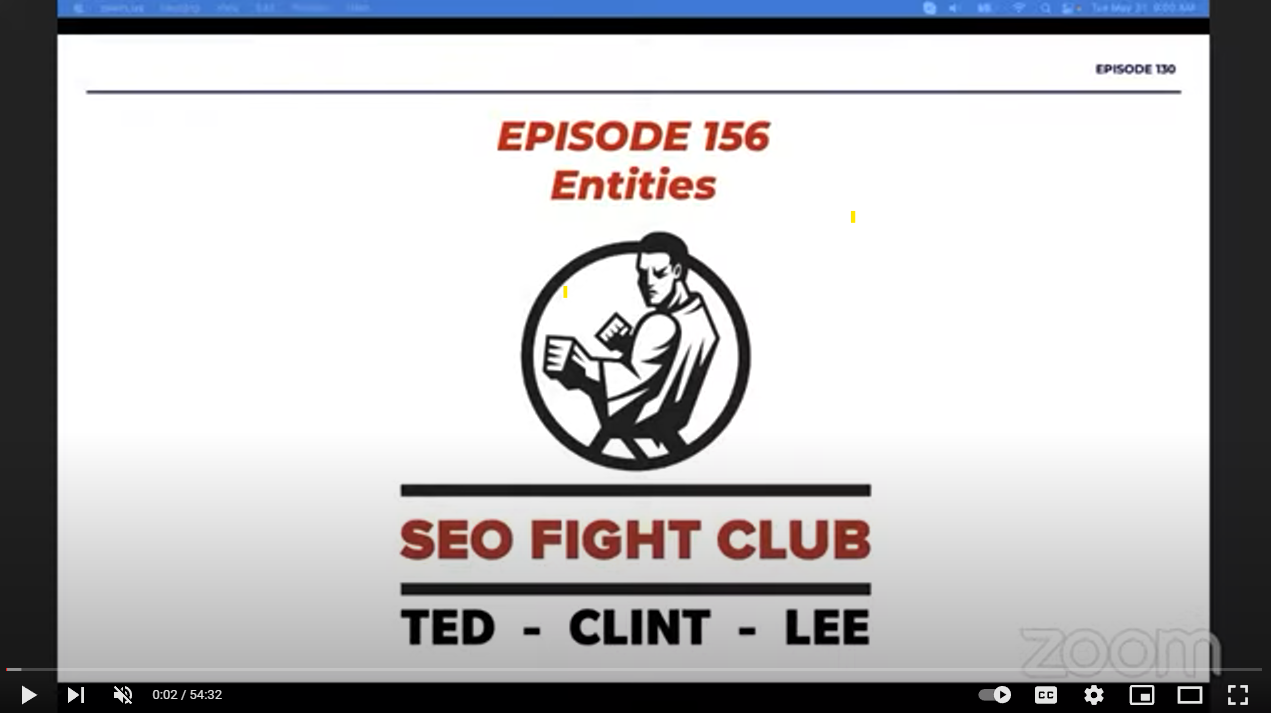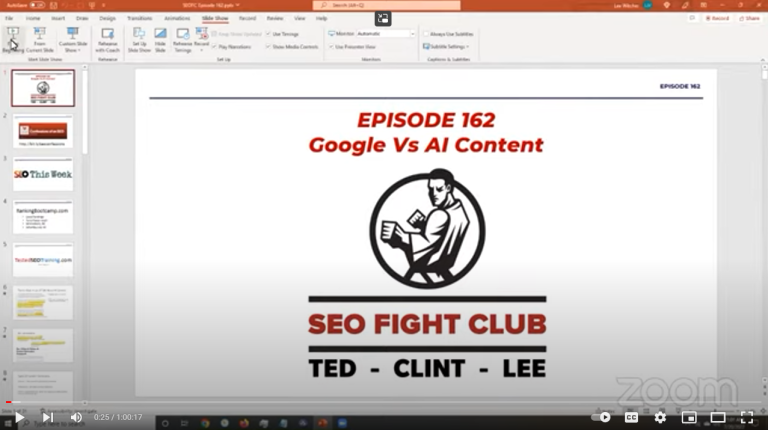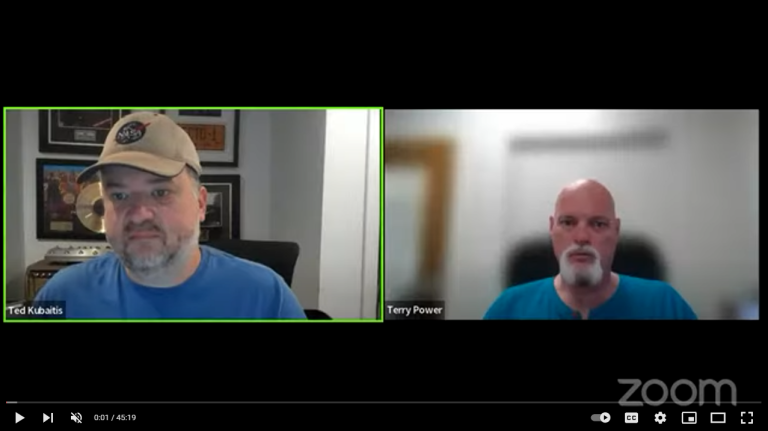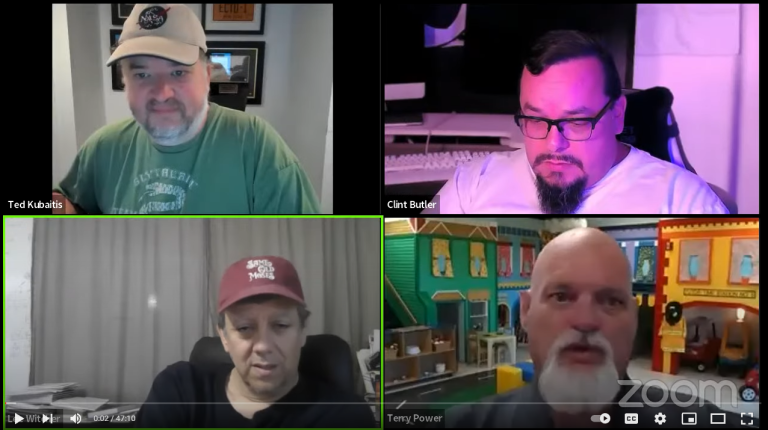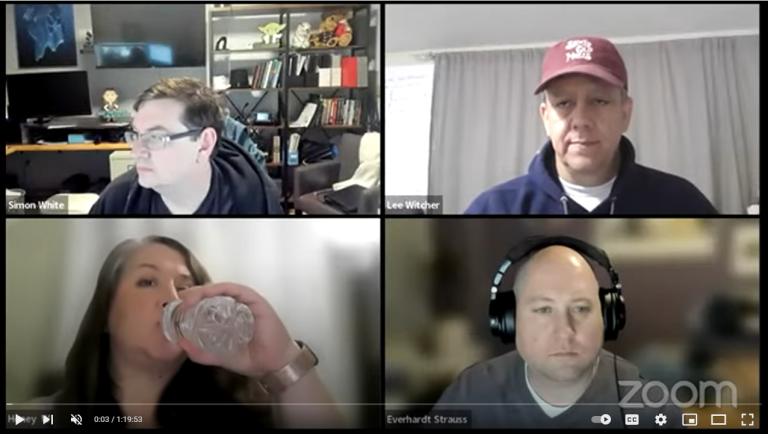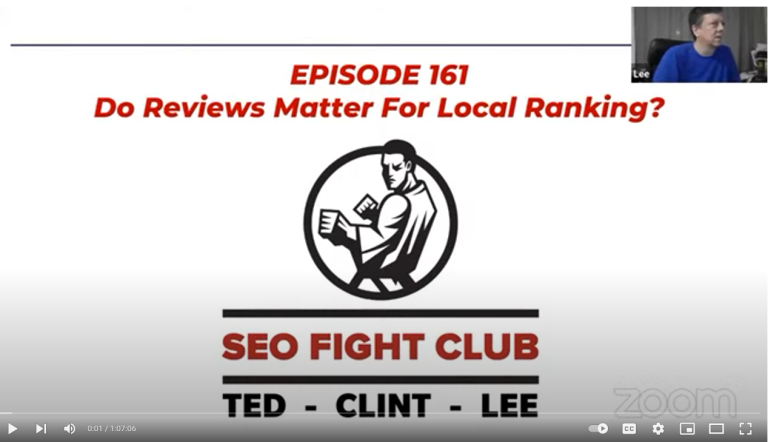SEO Fight Club – Episode 156 – Entities
SEO Fight Club / By
“The Entity Debate: Has The Verdict Changed?”
-Two and a half years ago, there was debate amongst SEO testers about entities.
-Some argued they should do more research while others called it a ridiculous thing to do in SEO.
-I want to look back on these claims and see how things have panned out today.
-My tested data has shown entities are important for optimal utilization methods.
-Still some people stubbornly believe that entities are not a thing even though it is the definition of them.
-Others jumped the gun on their hardline position without seeking further evidence first.
-Old videos online still influence people’s opinions today despite all the testing done since then.
==========
“Contextualizing The Knowledge Graph: Finding The ‘Things’ Among The ‘Strings'”
-In May of 2012, Google coined the phrase ‘things not strings’ as part of their introduction to the Knowledge Graph.
-The Knowledge Graph is made up of entities which are nouns that Google’s AI can understand contextually.
-Collections of related entities on a page form the topic of that page and describe what it is about.
-Google has publicly admitted to using entities, such as in a quote from Gary Illyes at PubCon: “In web search we have entities for very popular authors.”
==========
“Illuminating The Entities Of Google Search: Uncovering Hidden Gems”
-Google was displaying entities in desktop search, but took it away for fear of signaling too much.
However, you can still find them if you open a Google incognito window and use the inspect feature to select ‘iPhone 12 Pro’ from the dimension drop down.
-Entity cards contain important words that are topically relevant to your search query; this helps Google understand what type of page it is and how best to rank it.
-Examples of entity cards include types of frogs, types of lawyers, types of bags, types of gemstones, etc.-You can tell if something may be an entity by looking at whether or not there is a dedicated Wikipedia page about it. Wikipedia draws from databases such as Freebase and Wikidata which also have specific Entity Database IDs.
==========
“Unlock The Secrets Of Patio Furniture: An Exploration Of Data Entities”
– I recently discussed the importance of understanding different types of patio furniture; aluminum, rod iron, rot iron, Adirondack wood table chase lounge wicker and more.
– Testing concepts about entities can be done with obscure ancient microscopic fossils since they have no search volume as an effective test bed.
– Through inspecting entity cards on public databases such as WikiData or FreeBase Google’s S12, one can find information like data entity IDs and related names.
– There is evidence from SEOS successfully ranking pages using entities that show its influence on rankings such as statistical data and proprietary research to back it up.
==========
“A Search Engine’s Perspective On Entities And LSI Keywords”
-When looking for evidence, it is more compelling to look at the actual search engine behavior rather than what a guru says.
-My skepticism towards entities changed when I saw how the algorithm reacted and it was hard to deny that they had an effect on search engine rankings.
-The best way to use entities in testing or on websites is to pick those that make sense for your content and pepper them throughout appropriately.
-It’s important not overuse entities as some can take you off topic, so only select the ones relevant to your topic.
-LSI keywords are words that co-occur on pages that rank well, and are discovered statistically which makes them similar with entities but restricted by language limitations of entity databases.
-Tools like TextRazer can help you find related entities efficiently and accurately.
==========
“Organizing SEO Factors For Success”
– I use Quora for entity data and the Text Razer tool built on the Google NLP stack
– There are a variety of keyword tools available to extract entities from webpages
– A/B testing is important to verify results with SEO methods
– Paul reported that his website increased after using entities, which has been seen by many other SEOs as well
– The transition from Skype to Slack was successful in creating a better user experience
– The new members area and testing setup make it easier organize positive ranking factors, negative ranking factors, keyword research etc.

